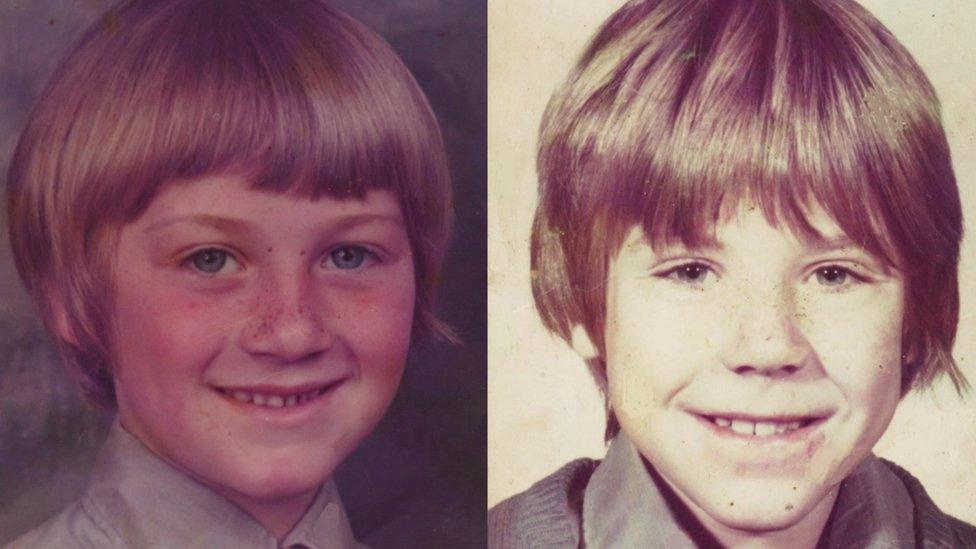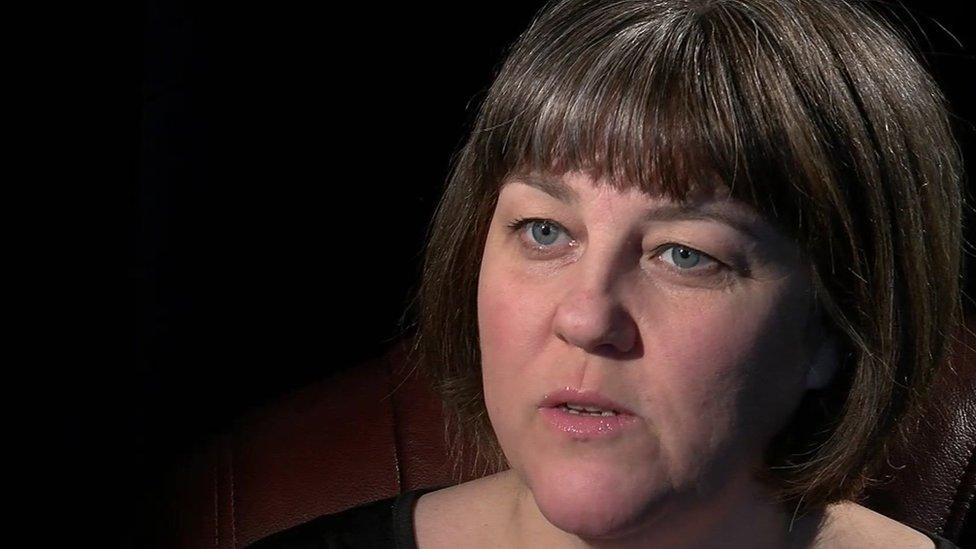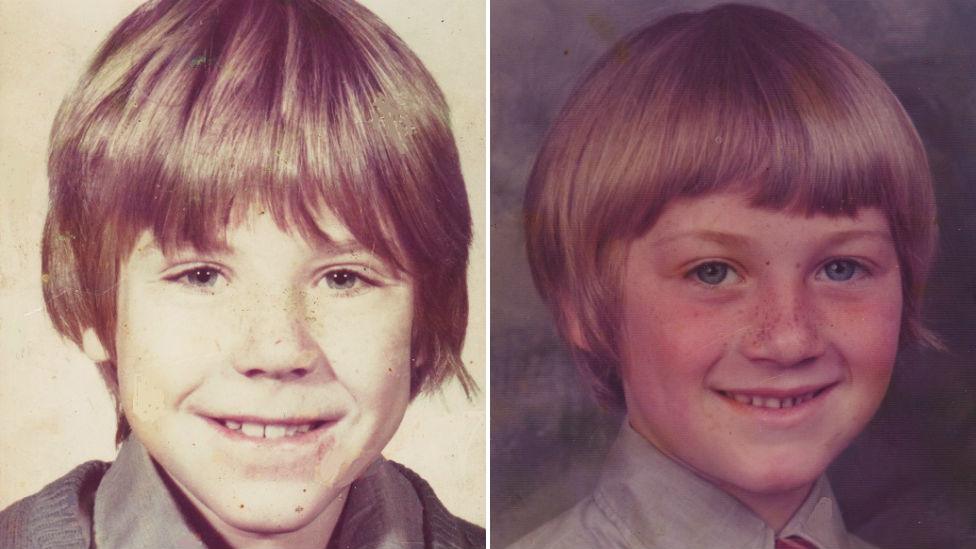Whiston boys' murders: 'Double jeopardy reform needed'
- Published

John Greenwood and Gary Miller were battered and left on a rubbish tip in 1980
Detectives investigating the murder of two schoolboys say only a change in the law could help them re-interview a suspect acquitted at trial.
John Greenwood and Gary Miller, both 11, were beaten and their bodies hidden on a rubbish tip in Whiston, Merseyside in 1980.
A man who denied murdering them was acquitted the following year.
Merseyside Police said questioning the suspect was the only way to get new evidence to reopen the case.
The boys' families have launched an online campaign to get the law changed regarding double jeopardy, external, which prevents a defendant from being tried a second time for the same offence.
The law was scrapped in 2005, but a suspect can only be re-tried if "new, compelling, reliable and substantial evidence" is produced.

Debbie Lewis said she cannot rest until she gets justice for the boys
The friends were found at a disused colliery in Pottery Lane on 16 August 1980. They both later died in hospital.
After a review of the force's original investigation Chief Constable Andy Cooke apologised to the boys families and said it was not "in line with... standards expected of policing today".
Merseyside Police submitted a file containing new evidence in May last year but the Director of Public Prosecutions (DPP) rejected it.
"We believe being able to re-question suspects could potentially lead to being able to demonstrate the new and compelling evidence needed to reopen particular cases, including the murders of John Greenwood and Gary Miller," Assistant Chief Constable Ian Critchley said.
The sister of John Greenwood, who was two years old when he was killed, has set up an online petition to change the law to allow detectives to question suspects again.
Debbie Lewis said 40 years on the "repercussions go on and on" for the boys' families.
She said they could not rest until they achieved justice for their boys.
"There should always be systems in place to protect people from harassment but this [law] goes way too far in the other direction."
The DPP is yet to comment.
- Published10 May 2019

- Published20 April 2017

- Published16 October 2016
